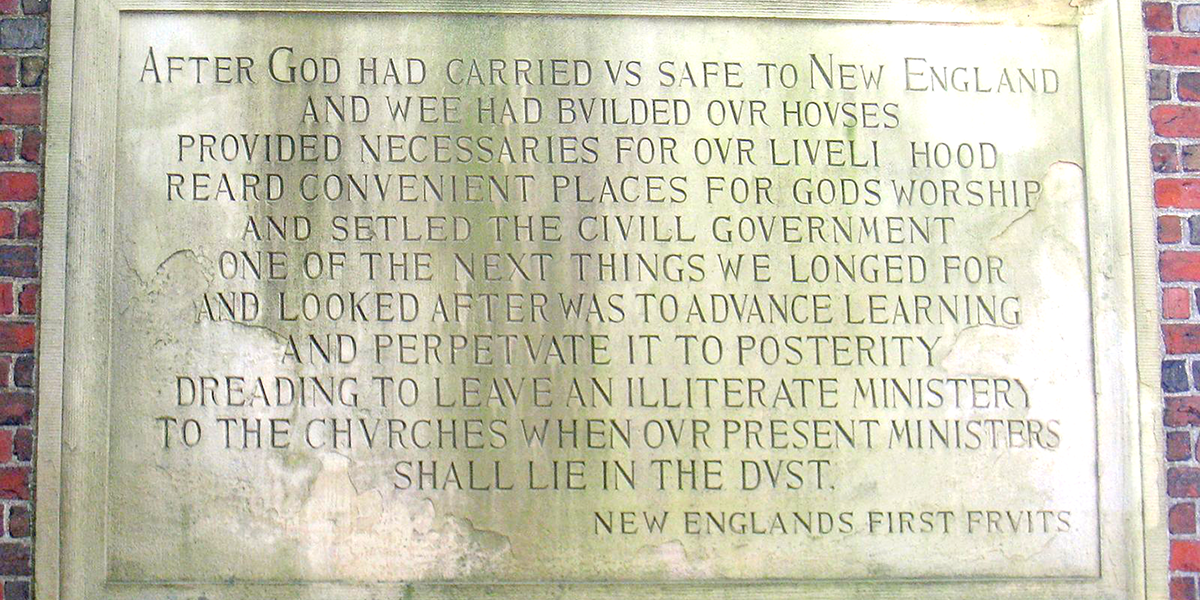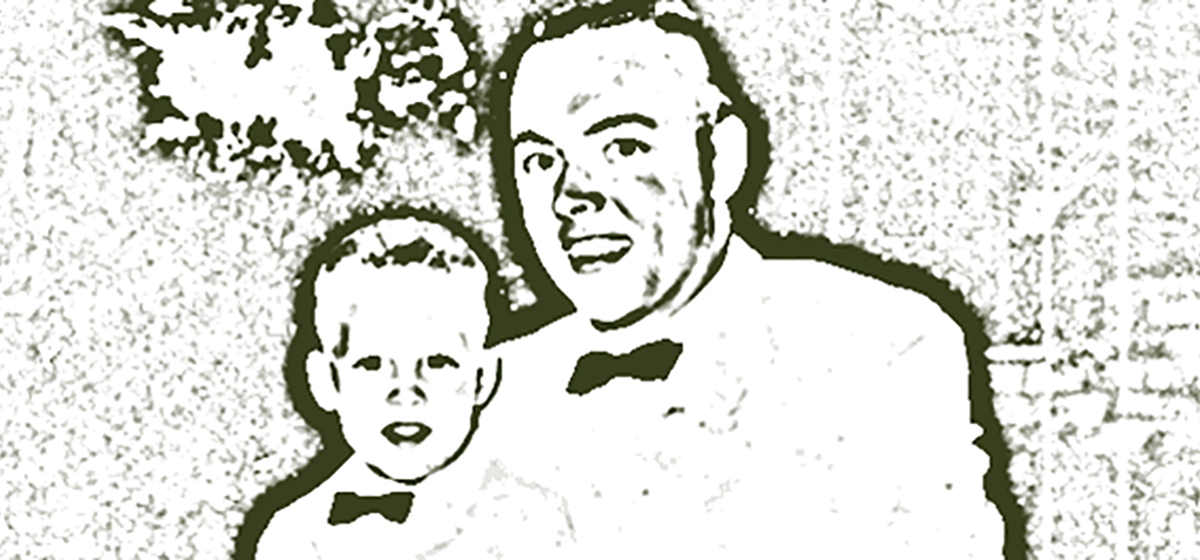Atheist unanimously elected president of Harvard Chaplains
God started it. He designed the universe and everything in it. He created people, family, and community, and instructed leaders to teach children and adults His commands, to obey and fear Him, and to love Him with all one’s heart, soul, and strength (Dt. 6:1-7). Yet, people have historically sought to cast off God’s constraints, complained about His commandments, ignored His chastisements, denigrated His Word, and even denied His existence.
Compare Harvard University’s recent unanimous election of an atheist as President of Harvard Chaplains to the sentiments expressed on the “New England First Fruits” tablet at Harvard’s Johnston Gate entrance (see photo above). After the early settlers thanked God for safe passage across the ocean, built their houses and places to worship God, and settled the civil government, they chose as their next priority the advancement of learning so as to avoid leaving an illiterate ministry upon the deaths of their living ministers.
Massachusetts colony leaders founded the college in 1636; received the first printing press on the continent in 1638 and printed the first book in America, “The Whole Booke of Psalms,” in 1640; named the college after benefactor and clergyman John Harvard in 1639; adopted “Rules and Precepts” in 1646 that included admonitions to “Let every student be plainly instructed, and earnestly pressed to consider well, the main end of his life and studies is, to know God and Jesus Christ which is eternal life, John 17:3, and therefore to lay Christ in the bottom, as the only foundation of all sound knowledge and learning”; officially chartered Harvard in 1650 for the “education of the English and Indian youth of this country in knowledge and godliness”; and established their early motto as Veritas Christo et Ecclesiae, “Truth for Christ and the Church.”
Now however, three and a half plus centuries later, Greg Epstein, Humanist Chaplain at Harvard, has been elected to lead the university’s more than 40 chaplains from more than 20 religious traditions. Although a Rabbi who doesn’t believe in God, he professionally trains clergy who seek to minister to nonreligious people. He holds three religious degrees and has been named one of the top national leaders in faith and morality.
According to Epstein, “There is a rising group of people who no longer identify with any religious tradition but still experience a real need for conversation and support around what it means to be a good human and live an ethical life.”
“We don’t look to a god for answers; we are each other’s answers.”
Greg Epstein, President of Harvard Chaplains
In Psalm 2:1-3, the psalmist laments that nations conspire and people plot in vain against the Lord and his anointed saying, “Let us break off their chains and throw off their shackles.” In doing so, people imagine themselves free of God, free of religious obligations, and free of perceived archaic rules and precepts. But, what of their claims about goodness and ethical living?
Apart from God and His Word, “goodness” and “ethics” have nothing but human opinions to define them.
Isn’t it odd when people who do not want to obey God’s Word, or even believe in God, still impose religious beliefs on themselves and engage in religious activities? Remember the disobedient Hebrews in the wilderness who worshipped a golden idol they crafted themselves? Remember the northern kingdom of Israel’s first king, Jeroboam, who built his own altars and an entire system of corrupt worship based on his own ideas instead of the Lord’s commands? Consider the Pharisees and Sadducees, Greeks and Romans, and hundreds of other groups and cultures throughout history – including some religious and secular cultures and institutions today – that have borrowed from God to fabricate their own religious rules and traditions.
Harvard’s founders valued literacy; believed in the duty of parents and communities to ensure that children could read and write and interpret the Bible for themselves; and helped pass the “Old Deluder Satan Act of 1647” to establish schools to thwart “ye old deluder, Satan” from keeping “men from the knowledge of ye Scriptures.”
Today, Harvard has thousands of employees, an average of 22,000 students enrolled, and 400,000+ alumni. Some probably still embrace Harvard’s Gospel roots. However, most of Harvard’s 385-year old, nearly $42 billion endowment and $5+ billion annual budget (funded 20% by student income, 46% by charitable gifts, and the rest mostly by sponsors) no longer seems primarily dedicated to promoting “Truth for Christ and the Church.” Rather, led by an institutionally respected atheist in an increasingly secular culture woefully bereft of the Word of God and the Gospel of Jesus Christ, they seek their answers elsewhere. They think of themselves as free and learned, in spite of Harvard’s original institutional admonition that Jesus Christ is the only foundation of all sound knowledge and learning.
But Harvard is not alone. “Non-religious” is the fastest growing “religious” group in America, including four in ten millennials who identify as agnostic, atheist, or nonreligious. Many other colleges and universities – similarly founded by Christians and based on biblical principles – have abandoned the Bible and the Gospel in favor of humanistic faith, ethics, and ideals. These teachings – syncretistic amalgamations of godless opinions often embedded with flecks of biblical truths and strands of Christian values – are ultimately pervasive and destructive. They lead students of all ages astray through half-truths, outright lies, and rejections of multiple realities, including God Himself and the truth of His Word.
I would love The Bible Seminary (TBS) to have the leverage of Harvard’s enrollment, endowment, and educational clout. But, only to the extent that TBS always maintains that the purpose of life and studies is to know God and Jesus Christ, which is eternal life (John 17:3), and that the fear of the Lord is the beginning of wisdom and knowledge of the Holy One is understanding (Proverbs 9:10).
Ultimately, God will finish what He started. Until then, heed the psalmist’s counsel, “Be wise, be warned, serve the Lord with fear and celebrate his rule with trembling. Kiss his son, or he will be angry and your way will lead to your destruction…blessed are all those who take refuge in him” (Psalm 2:10-12).





